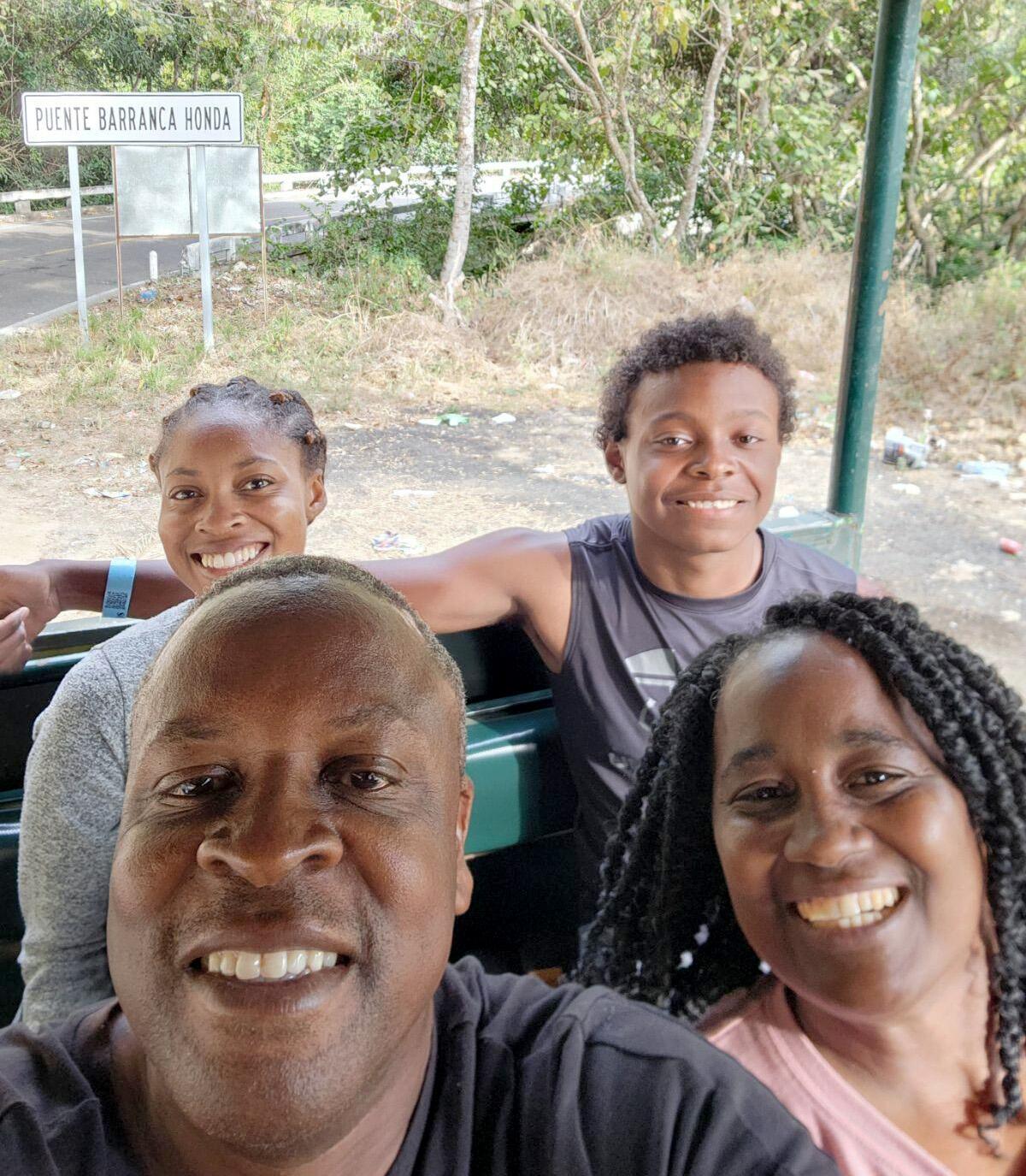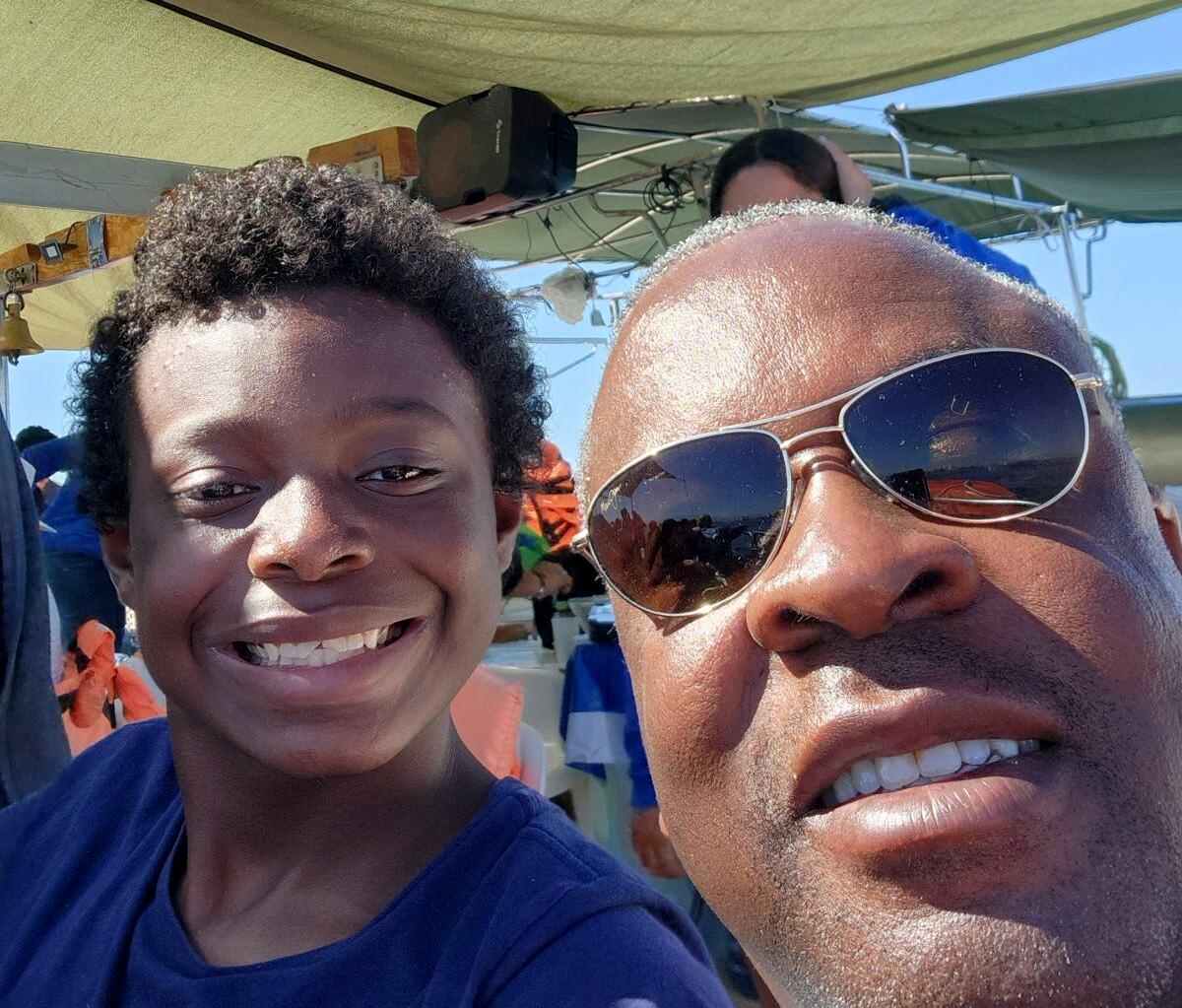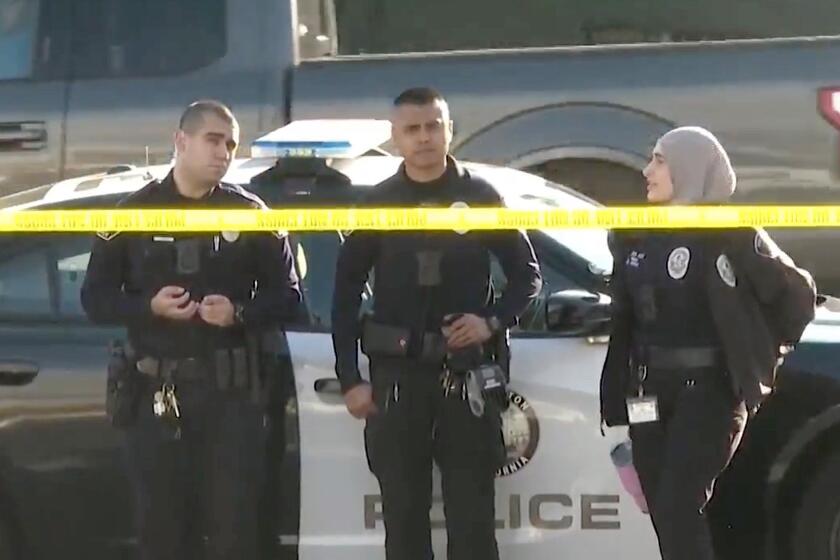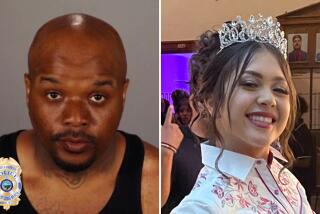Fatal shooting of autistic teen raises concerns about police response to people with mental health issues

- Share via
Ryan Gainer, a teen with autism, was a cross-country runner who worked out his frustrations with six-mile runs and dreamed of becoming an engineer.
On Saturday afternoon, the 15-year-old became upset that his parents had demanded he complete his household chores before he would be allowed to play video games or listen to music on his computer, according to DeWitt Lacy, a civil rights attorney representing Ryan’s family.
“He got upset. Any teen would be upset by that,” Lacy said. Some people with autism experience more heightened emotions and on that day Ryan responded by breaking glass on the front door, Lacy said.
A family member called 911 for help, asking dispatch to send deputies to “take him in” because he was breaking glass and hitting his sister, according to a portion of the call released by the San Bernardino County Sheriff’s Department.
But instead a responding deputy fatally shot the teen, saying he had threatened the deputy with a garden tool.
A 15-year-old Apple Valley youth was shot and killed by a San Bernardino County sheriff’s deputy during an altercation with family members.
Ryan’s death has heightened concerns from activists about law enforcement’s use of force against people suffering from mental health issues and the lack of supportive services available for families when they call police for help.
The death was not the first.
The San Bernardino County Sheriff’s Department was sued last year after deputies shot and killed Tony Garza while he was in the middle of a mental health crisis.
In 2019, an off-duty LAPD officer fatally shot 32-year-old Kenneth French, who had a cognitive disability, during an altercation inside a Costco in Corona.
Zoe Gross works as the advocacy director at the Autistic Self Advocacy Network, a nonprofit organization run by and for individuals on the autism spectrum. Gross said it’s critical that law enforcement release a fuller picture of what happened during their encounter with Ryan to better understand what could have been done differently.

“The autistic community has seen far too many cases of law enforcement profiling, targeting, and using excessive, sometimes deadly force on Black autistic people,” Gross said. “Because of the prevalence of police violence and the amount of unmet need in our communities, we must fund and implement alternatives to policing.”
Gross said these alternatives could include dispatching other types of first responders for people in crisis, such as specially trained EMTs, as well as funding community services that could provide support before people resort to calling authorities.
Lacy, the Gainer family’s attorney, said the sheriff’s department had experience with Ryan and had responded to the family’s home on previous occasions.
“Once they typed up the address, it should have clearly shown this was somebody that had some mental health issues at times,” Lacy said. “They should have used deescalating techniques. I think the shots were inappropriate and uncalled for. Nobody’s life was within imminent danger.”
Lacy added the officers “should have created time and distance and talked to Ryan using the skills they learned in the basic police academy.”
Anytime there’s a shooting in the news, dread floods Lillian Vasquez.
By the time deputies responded to the 911 call at the Gainer home on Iroquois Road, Ryan’s father had helped the teen calm down, Lacy said. But for an unknown reason, when a deputy appeared at the open front door, Ryan walked toward him holding a hula hoe, a type of garden tool that has a metal D-shaped fixture on the end for digging into dirt.
The deputy yelled, “Hey, get back, you’re going to get shot” as Ryan approached him carrying the tool, according to edited body-camera footage released by the sheriff’s department. Footage from another deputy’s body camera at another angle showed the deputy pointing his gun at Ryan as he ran from the teen.
At some point during the exchange, at least one deputy opened fire, striking Ryan three times, Lacy said.
The moment when shots are fired is not depicted on the either of the videos released by law enforcement. Advocates and Lacy have called on the sheriff’s department to release the full footage as well as the complete 911 calls and communication between dispatch and the deputies. It is not clear whether deputies knew about Ryan’s autism during the call.
Police fired multiple rounds at the man outside a Fullerton McDonald’s.
Areva Martin, a civil rights attorney and disability rights advocate, said the sheriff’s department’s decision to only release a portion of the video was “a deliberate obfuscation of the truth.”
“The fact that Ryan, who had autism, was shot and killed while holding a gardening tool in what was clearly a state of distress, raises grave questions about the adequacy of law enforcement training and their ability to de-escalate situations involving vulnerable members of our community,” she said.
San Bernardino County Sheriff Shannon Dicus called for a strengthening of the “social safety net” for those experiencing mental health issues in a statement released over the weekend.
“Our deputies handle seemingly insurmountable calls daily. Most of these calls do not end in violence. However, this one ended in tragedy for Ryan, his family, and for the deputies who responded. Rapidly evolving, violent encounters are some of the most difficult, requiring split second decisions. While these decisions are lawful, they are awful in terms of our humanity,” Dicus said.
The sheriff’s department wrote in a news release that deputies “quickly rendered medical aid to Gainer and continued until paramedics arrived” after the shots were fired. However, Lacy disputed this, saying witnesses told him that law enforcement waited more than five minutes to render aid as the teen lay on the driveway bleeding. Deputies also prevented witnesses and Ryan’s family from trying to help the boy, at times pointing their firearms at them, Lacy said.
A medical professional later told Ryan’s parents that he died from asphyxiation that occurred after the shooting, Lacy said.
But a sheriff’s spokesperson told The Times that Ryan’s cause of death has not been determined because an autopsy has not been completed.
“It wasn’t gunshot wounds that killed him,” Lacy said. “It was the fact that officers didn’t give any care after they shot a 15-year-old autistic teen. They showed disregard for human life.”
More to Read
Sign up for Essential California
The most important California stories and recommendations in your inbox every morning.
You may occasionally receive promotional content from the Los Angeles Times.













